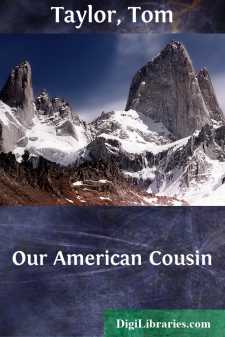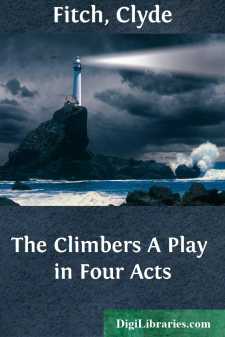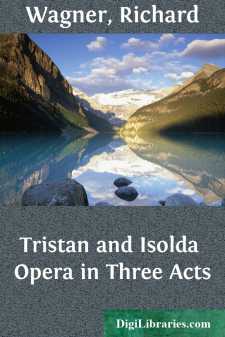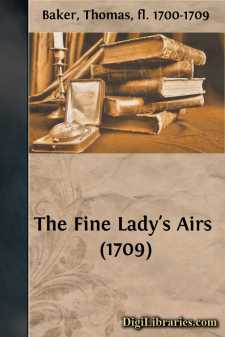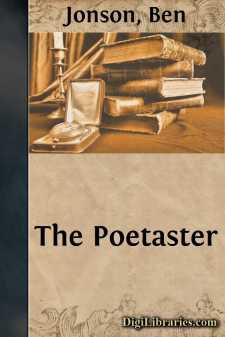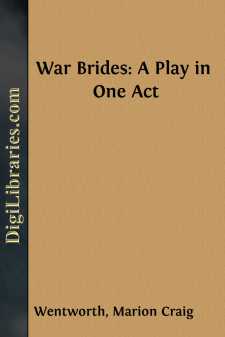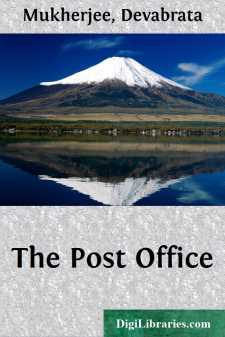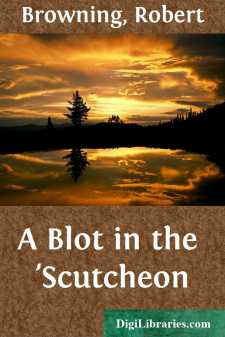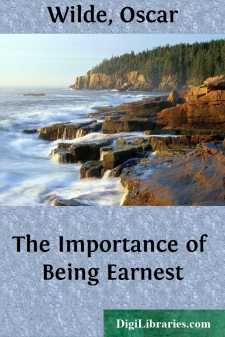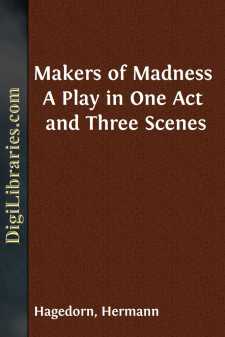Drama Books
Sort by:
by:
Tom Taylor
ACT I. Scene 1—Drawing room in 3. Trenchard Manor, C. D., backed by interior, discovering table with luncheon spread. Large French window, R. 3 E., through which a fine English park is seen. Open archway, L. 3 E. Set balcony behind. Table, R., books and papers on it. Work basket containing wools and embroidery frame. A fashionable arm chair and sofa, L. 2 E., small table near C. D. Stage handsomely...
more...
by:
Clyde Fitch
ACT I A drawing-room at the Hunters', handsomely and artistically furnished. The woodwork and furniture are in the period of Louis XVI. The walls and furniture are covered with yellow brocade, and the curtains are of the same golden material. At the back are two large windows which give out on Fifth Avenue, opposite the Park, the trees of which are seen across the way. At Left is a double doorway,...
more...
by:
Richard Wagner
TRISTAN AND ISOLDA. ACT I. [A pavilion erected on the deck of a ship, richly hung with tapestry, quite closed in at back at first. A narrow hatchway at one side leads below into the cabin.] SCENE I. ISOLDA on a couch, her face buried in the cushions.— BRANGÆNA holding open a curtain, looks over the side of the vessel. THE VOICE OF A YOUNG SAILOR (from above as if at the mast-head). ISOLDA...
more...
by:
Thomas Baker
INTRODUCTION In the first decade of the eighteenth century, with comedy in train to be altered out of recognition to please the reformers and the ladies, one of the two talented writers who attempted to keep the comic muse alive in something like her "Restoration" form was Thomas Baker.[1] Of Baker's four plays which reached the stage, none has been reprinted since the eighteenth century...
more...
by:
Ben Jonson
INTRODUCTION THE greatest of English dramatists except Shakespeare, the first literary dictator and poet-laureate, a writer of verse, prose, satire, and criticism who most potently of all the men of his time affected the subsequent course of English letters: such was Ben Jonson, and as such his strong personality assumes an interest to us almost unparalleled, at least in his age. Ben Jonson came of the...
more...
WAR BRIDES The war brides were cheered with enthusiasm and the churches were crowded when the wedding parties spoke the ceremony in concert.—PRESS CLIPPING. SCENE: A room in a peasant's cottage in a war-ridden country. A large fireplace at the right. Near it a high-backed settle. On the left a heavy oak table and benches. Woven mats on the floor. A door at left leads into a bedroom. In the...
more...
ACT I [MADHAV'S House] MADHAV. What a state I am in! Before he came, nothing mattered; I felt so free. But now that he has come, goodness knows from where, my heart is filled with his dear self, and my home will be no home to me when he leaves. Doctor, do you think he— PHYSICIAN. If there's life in his fate, then he will live long.But what the medical scriptures say, it seems— MADHAV....
more...
by:
Robert Browning
INTRODUCTORY NOTE ROBERT BROWNING stands, in respect to his origin and his career, in marked contrast to the two aristocratic poets beside whose dramas his "Blot in the 'Scutcheon" is here printed. His father was a bank clerk and a dissenter at a time when dissent meant exclusion from Society; the poet went neither to one of the great public schools nor to Oxford or Cambridge; and no...
more...
by:
Oscar Wilde
FIRST ACT SCENE Morning-room in Algernon’s flat in Half-Moon Street. The room is luxuriously and artistically furnished. The sound of a piano is heard in the adjoining room. [Lane is arranging afternoon tea on the table, and after the music has ceased, Algernon enters.] Algernon. Did you hear what I was playing, Lane? Lane. I didn’t think it polite to listen, sir. Algernon. I’m sorry...
more...
by:
Hermann Hagedorn
SCENE I A room in the Ministry of War in the capital of Iberia. Evening. The minister of war, a tall, stern, bearded man with deep-set eyes and many furrows, is sitting at a large, mahogany desk-table, Left. The chief of staff, silent, motionless and watchful, stands beside him with his hands resting on the table-top. He is thin, old and emaciated, clean-shaven, firm-lipped, and looks startlingly like...
more...


